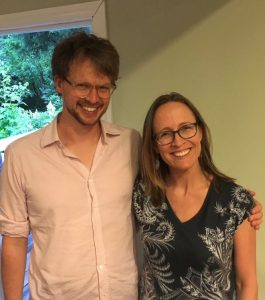Visiting Scholar – Markus Hafner

Markus Hafner studied Classics, Education, and Practical Philosophy at LMU Munich (Germany) and National Athens University (Greece). He gained his doctorate in Classics at LMU Munich in 2016. Besides his research activities, he has taught courses in Latin and Greek (at various levels) at LMU Munich (2013-2016), Heidelberg University (2017 and 2018), and the Humboldt University of Berlin (2018).
A big part of his scholarship focuses on Lucian the Satirist, on whose works he has published two commentaries (both published in 2017) . In other articles, which have appeared in journals and edited volumes, he considers the various techniques of persuasive rhetoric in a broad spectrum of Imperial Greek Literature.
At present he is working on a book-length project on conceptions of collaborative authorship and authorial voices in Late Archaic and Classical Greek literature (especially between the 6th and the 4th centuries), which was his research project as an Alexander von Humboldt Fellow at UNC Chapel Hill.
By differentiating between phases or functions of authorial activity, he wishes to shed new light on ancient conceptions of authorship and help to reformulate the differences between authorial autonomy and multi-author interdependence or collaboration. These authorial activities are thus considered to be a cooperative sociocultural practice rooted in a polyauthorial network, comprising various actors engaged in the composition, circulation, (re-)performance, and transmission of texts. At the same time, we identify an authoritative voice in a text (most prominently the poet’s or narrator’s ‘I’), which establishes the presence of a personal identity. By inserting a mediating voice as a marker of authorial presence, authors seek to control their own subsequent reception and to ensure at least a degree of authorial autonomy within the complex cultural network of authorial activities. Accordingly, we encounter different types of authorially self-reflexive strategies (e.g. the explicit name-dropping in historiography) and stagings of authorial voice(s), which range from the ostentious self-fashioning and self-characterisation of the author within the text to its virtual absence (e.g. in Plato and Xenophon). All these authorial representations deal innovatively with a changing contemporary cultural environment.